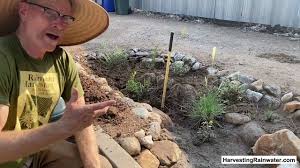
Breaking News
 Back to cash: life without money in your pocket is not the utopia Sweden hoped
Back to cash: life without money in your pocket is not the utopia Sweden hoped
 How people spent their time from 1930 - 2024
How people spent their time from 1930 - 2024
 Superwood is Here! This Amazing New Material Could Change The World!
Superwood is Here! This Amazing New Material Could Change The World!
 If only we'd built those offshore wind turbines, eaten more cricket-burgers...
If only we'd built those offshore wind turbines, eaten more cricket-burgers...
Top Tech News
 New AI data centers will use the same electricity as 2 million homes
New AI data centers will use the same electricity as 2 million homes
 Is All of This Self-Monitoring Making Us Paranoid?
Is All of This Self-Monitoring Making Us Paranoid?
 Cavorite X7 makes history with first fan-in-wing transition flight
Cavorite X7 makes history with first fan-in-wing transition flight
 Laser-powered fusion experiment more than doubles its power output
Laser-powered fusion experiment more than doubles its power output
 Watch: Jetson's One Aircraft Just Competed in the First eVTOL Race
Watch: Jetson's One Aircraft Just Competed in the First eVTOL Race
 Cab-less truck glider leaps autonomously between road and rail
Cab-less truck glider leaps autonomously between road and rail
 Can Tesla DOJO Chips Pass Nvidia GPUs?
Can Tesla DOJO Chips Pass Nvidia GPUs?
 Iron-fortified lumber could be a greener alternative to steel beams
Iron-fortified lumber could be a greener alternative to steel beams
 One man, 856 venom hits, and the path to a universal snakebite cure
One man, 856 venom hits, and the path to a universal snakebite cure
 Dr. McCullough reveals cancer-fighting drug Big Pharma hopes you never hear about…
Dr. McCullough reveals cancer-fighting drug Big Pharma hopes you never hear about…
Plant the rain--don't drain it--to end the drought with passive water harvesting by Brad Lancast

For them, the drought continues.
But for those who planted and harvested the rain, the drought ended where water has deeply infiltrated and abundance has been renewed!
In this video Brad shows you how simple street-side stormwater-harvesting basins or "rain gardens" turn wasted "runoff" into harvested "runon", which is right on! Because this banks the water in the soil where newly-planted food- and medicinal-bearing native vegetation can access and utilize that free stormwater for months–even if we don't get another good rain for many more weeks. And mosquitoes can not get to the water because we store it below ground in living soil, NOT by pooling it above ground (this also reduces water loss to evaporation).
The idea is to create water-harvesting earthworks that plant the rain, then plant multi-use vegetation, which once established will be able to live on just the passively harvested rain—no supplemental irrigation with costly imported waters. You typically need to irrigate the newly planted plants for 1 to 3 years to get their root system growing well and established, before you can let them go on passively harvested water alone. (The exception is appropriate native plant seed that you plant in the rain gardens with the first good rain at the beginning of the rainy season. The seed that germinates will often make it on rainfall alone (unless it is a severe drought - then a little supplemental irrigation that first year would help).



